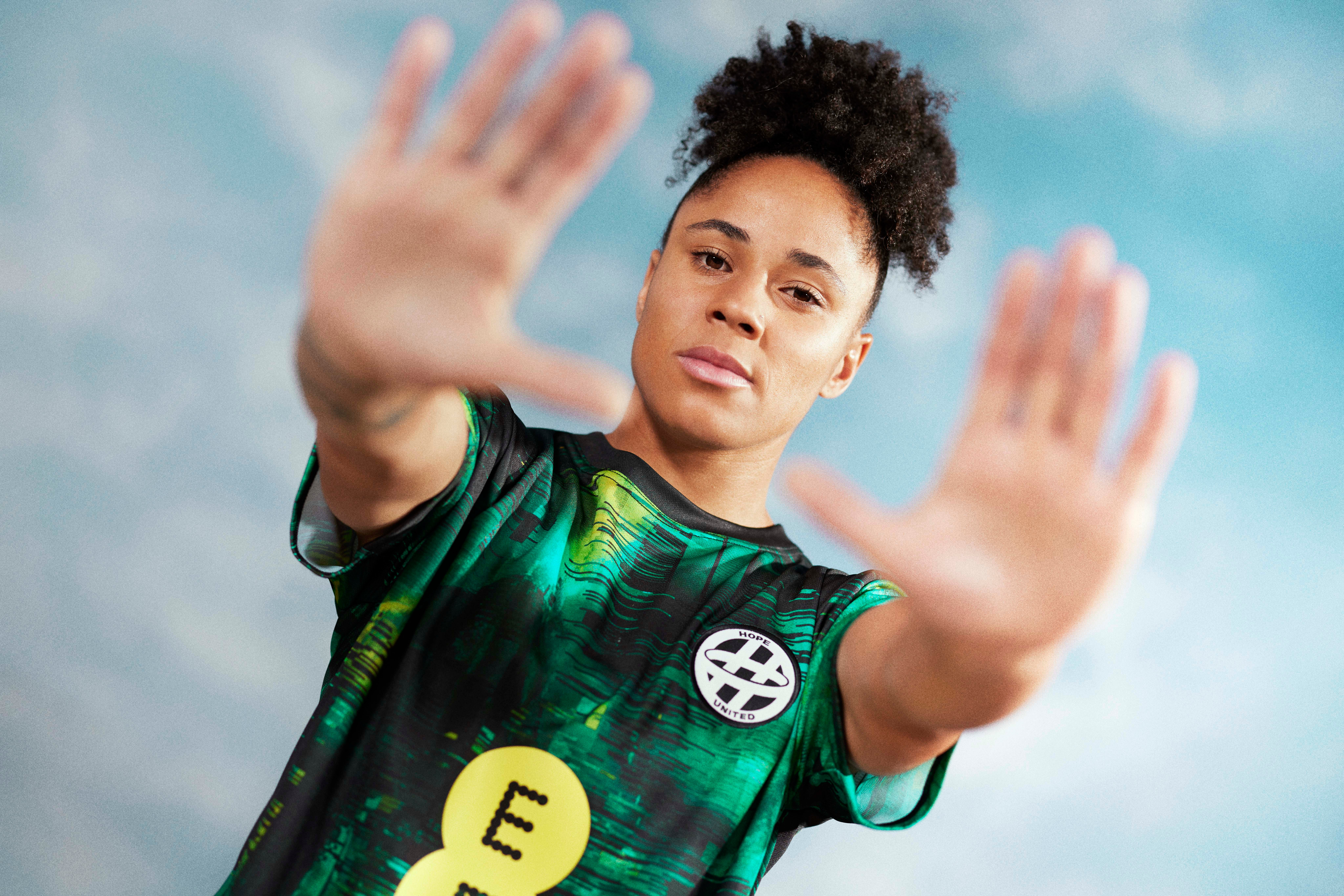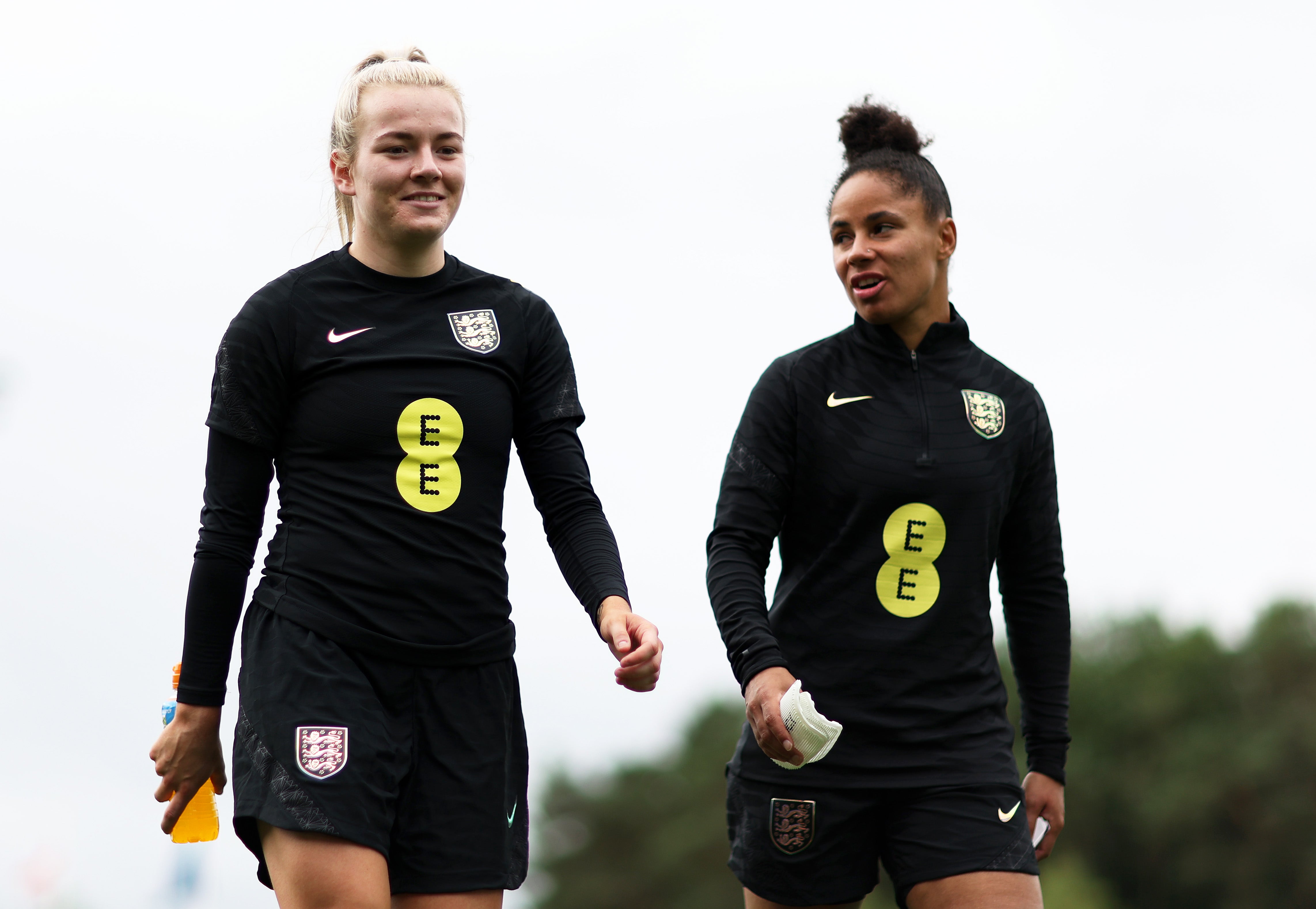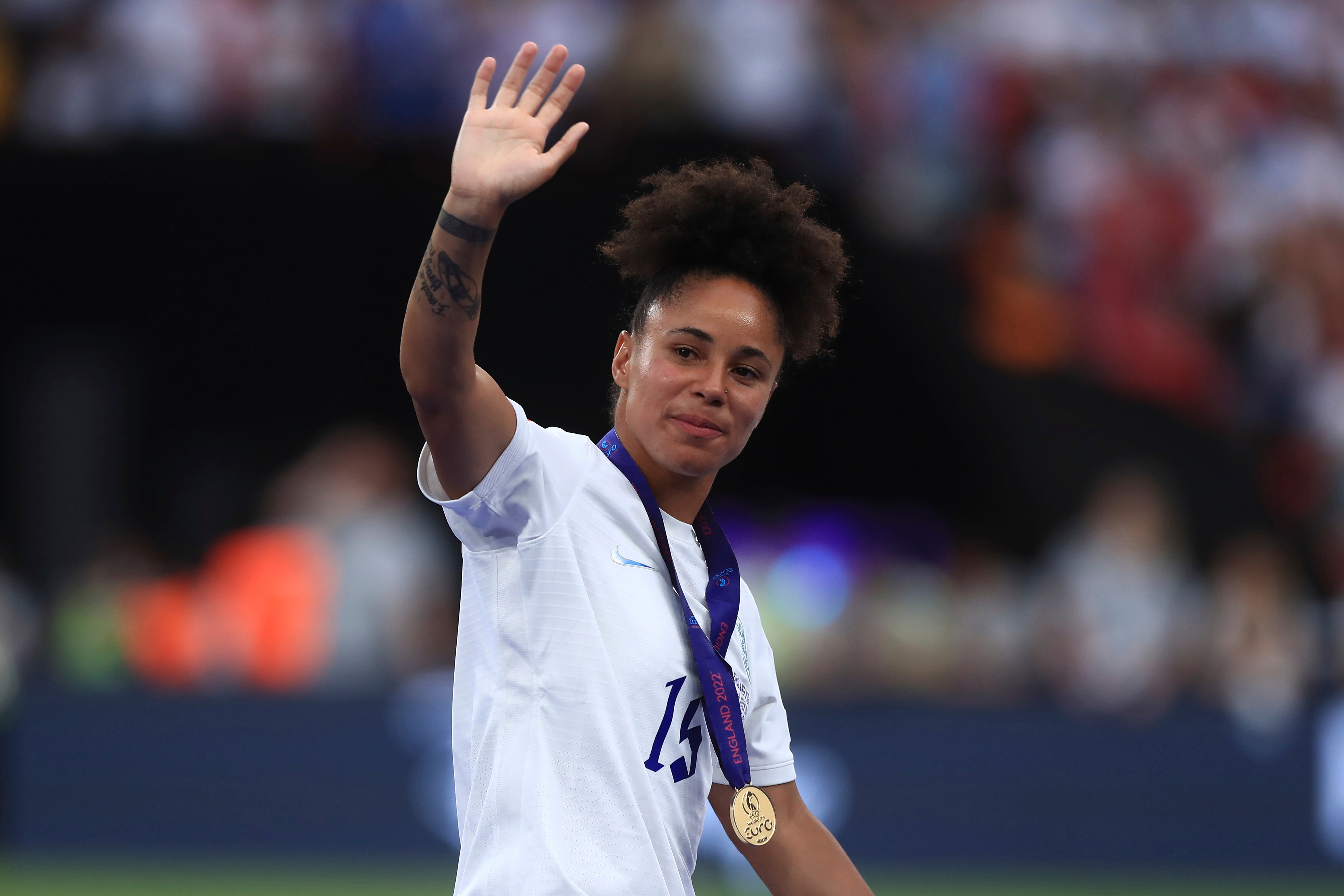
Misogynistic abuse on social media “really affected” some of the Lionesses’ ability to play football, England left-back Demi Stokes has revealed.
Stokes said the Lionesses were “first and foremost humans” and players should not have to play football while plagued with the fear of enduring online abuse for their performances.
The 30-year-old, who played for England women’s national football team at the Women’s Euros, revealed that some of the negativity had even come from old friends.

Stokes, whose team beat Germany with an extra-time win to secure England’s first major trophy since the men’s side lifted the 1966 World Cup, said even some of her “very thick-skinned” teammates had seen their performances or seasons “really affected” by having to deal with online abuse.
“When you are playing, you shouldn’t be worrying about if you don’t score, or you miss a goal, or you make a mistake,” she told The Independent. “And if you are going to get battered [on social media] when you go on your phone. That has happened.”
The Manchester City player said she had endured “a lot” of racial and sexualised abuse online and, although she did not like to look at it, she had reported some of it to the social media companies where it has appeared.
Before the Euros, Stokes said, the team started using a system that hides offensive language online to “protect” themselves, adding that social media “can really break people”.
But Stokes, who has a newborn baby called Harlen with her partner Katie Harrington, was resigned to the fact that the Lionesses “always” suffered online hate and probably “always will”.

She said she had even been forced to delete old friends and acquaintances on social media during the Euros after they had shared sexist content.
“It was people who I know quite well and it was really tough because I would have liked to say: ‘Actually, that is out of order and, actually, that is offending me,’” she added. “That is offending my team. But, obviously, in our position you can’t respond because, once you respond, it is what they want and you open a can of worms. I actually just delete people.”
Stokes, a member of Hope United, a team of female and male footballers committed to tackling online sexist hate, said some acquaintances had shown their “true colours” in online posts and she had challenged some.
She added: “If it has been someone I consider a good friend, I have been saying ‘you can’t say that; you have a daughter as well’.”
The footballer, who grew up in South Shields and previously played for Sunderland, said a few people whom her teammate Jill Scott knew were posting sexist content, but would claim it was “just a joke” and “just a bit of banter”.

New research carried out by Hate Lab, which collects data on hate speech, discovered that 92 per cent of the England women’s national football team were subjected to hate speech on social media platforms in the build-up to and during the tournament. Some 96 per cent of the abuse was misogynistic, while 4 per cent was homophobic. Researchers analysed more than 78,000 social media posts aimed at the Lionesses.
In Stokes’s view, sexism often stemmed from people’s “upbringing” and “what you have been told to believe about women”. She said she believed the origins of misogyny lay in previous generations when it was always the women’s responsibility to stay home and have children.
On the topic of her home life, Stokes noted that juggling a career with family life could be difficult for women, explaining that managing motherhood with the Euros was “probably one of the toughest things” she has done.
“Times are obviously changing,” added Stokes, who started playing for Sunderland’s youth academy when she was only eight years old. “It is very different. Women can be as successful, if not better. Women, we are incredible.”

As “funding and support” for the women’s game starts to boom as a result of the Lionesses’ success, Stokes said, it was a very “exciting time” to be a player, a coach or a referee.
“We want to give everyone the support and the opportunity to do what they want,” she said. “Whether you are a little boy or a little girl, that opportunity should be the same.”
Leading figures recently told The Independent that the Lionesses’ success in the Women’s Euros was spurring an increased interest in women’s football and overhauling a history of their exclusion from the game.
Women’s football clubs date back to the 1890s in the UK, but the FA banned women’s football in 1921, saying the sport was “quite unsuitable for females” and warning that it should not be “encouraged”. The FA council revoked the ban in 1971.
However, in Stokes’s opinion, women’s football was now an “open space for anyone and everyone” who was keen to come and watch, whether that was “a dad, a son, a mum, family, grandparents”.
Reflecting on her career, she said football had given her many opportunities and had enabled her to travel, concluding that her life would have been very different if she had never discovered the sport.
“First and foremost we love the game,” Stokes said. “We enjoy playing. It is all we have ever known. I always say when I’m playing football that I don’t have any worries, I don’t have to think about anything – I think some people need that.”







